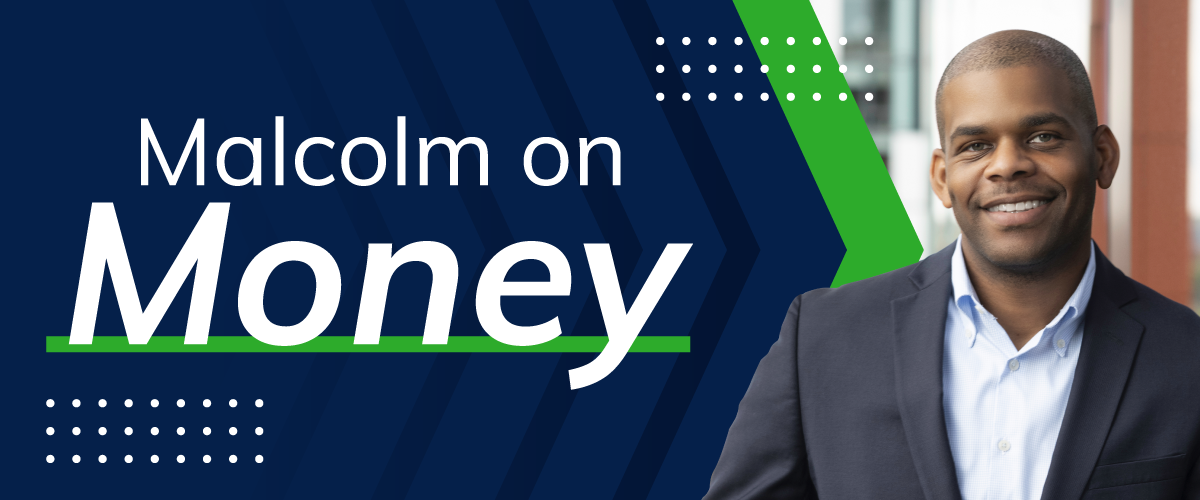Each week, the Malcolm On Money blog is updated with fresh new personal finance related content. Malcolm covers topics such as investments, taxes, insurance, retirement, and equity compensation.
The Malcolm On Money Guide to Restricted Stock Units
This guide is for those who receive equity as part of their total compensation each year, and is intended to help you understand and evaluate the decisions you are presented with, as well as give you the tools to develop your own strategy on how to turn the shares you receive into actual dollars.


It’s one thing to watch the company you work for exceed its sales targets and grow its revenues year after year, and another to participate in that success by being rewarded for your contributions. Such an arrangement helps align your interests with those of the company, whereby you want the company to succeed because your equity will increase in value if it does.
For those who are awarded equity as part of their annual total compensation, it’s critical to devise a strategy for those shares well in advance of their vesting. Having a plan for how to handle your shares as they become available will help take the emotion out of managing them. Unfortunately, there is no one-size-fits-all solution when it comes to equity compensation planning.
Creating stock grants that base payouts for executive employees on more than just their continued employment has become the new norm for a growing number of companies. These special stock grants are known as performance shares, and nowadays tech workers who reach executive status are more likely to receive grants of performance share units (PSUs) as opposed to stock options.
While stock options may still be included in the mix of grants received by top-level employees of private companies and startups, PSUs and restricted stock units (RSUs) have overtaken stock options in popularity at public companies due in part to their simplicity. However, performance shares are typically granted in conjunction with RSUs rather than in place of them.
If you’re a senior manager or executive at a publicly traded company, chances are you’re regularly meeting the IRS contribution limit on your 401(k) early in the year and wondering later what’s next. For 2025, the 401(k) contribution limit is $23,000 and is $30,000 if you’re over age 50.
That’s helpful. But when your total compensation includes salary, bonus, equity, and other perks, it’s not nearly enough to replace the kind of income you’re used to living on. For high earners, the gap between what you can save in a traditional retirement account and what you'll actually need in retirement to maintain your standard of living can be enormous.
When a raise at work materially boosts your discretionary income and ability to save—while in your twenties and thirties—cash probably matters most. But in your forties and beyond, especially at the highest marginal tax rates, receiving more of your compensation as equity gives you a shot at exponential growth and is far more likely to boost your net worth over time.
Generally, by the time you’ve reached the executive ranks of a company, a bigger paycheck rarely changes your day-to-day spending capacity in a meaningful way. By contrast, equity can move the needle tremendously. Whether via restricted stock units (RSUs) or performance share units (PSUs), if you’re negotiating a new executive compensation package, prioritize equity over cash.
When evaluating a job offer, it’s easy to get captivated by the headliners, particularly base salary, seniority level, and/or signing bonus. But if your current employer’s compensation package includes restricted stock units (RSUs), you could be leaving a substantial amount of money on the table by walking away too soon.
One of the most overlooked—and potentially costly—mistakes senior managers and executives make when switching jobs is failing to consider the forfeiture value of unvested equity. Career mobility is vital, and sometimes a new opportunity simply can’t wait. But knowing the forfeiture value of your equity gives you critical negotiating power you may not realize you have.
For most married couples, filing a joint tax return is generally simpler, cheaper, and better than filing separately. Joint filers are positioned in more favorable tax brackets and receive greater credits, so it’s advantageous to combine your returns.
The exceptions to this general rule are narrow and highly specific—think unusually large medical bills relative to one spouse’s income, student-loan repayment plans that look only at the borrower’s return, or in the heat of a separation or divorce proceeding. In less common cases, a separate return can be a rational choice even if it means losing out on some breaks.
For most people, the hardest part of the estate planning process is preparing and completing all the necessary paperwork. Yet for all the effort put into establishing the legal structure—identifying guardians, naming executors and powers of attorney, and making decisions about how assets should transfer—many stop short of doing the one thing that could make the entire plan work as intended: talking about it.
You might assume that because your wishes are well thought out and carefully written, they will automatically be honored when the time comes. But legal documents don’t speak for themselves. And those who have been assigned critical roles—like your executor, guardian, or healthcare proxy—will require more than a title. They will need context, direction, and reassurance.
If you work in a high-earning occupation like technology or healthcare, you have probably found yourself sitting through your fair share of sales pitches for life insurance, wondering how you got there. And when those sales pitches are concealed behind buzz phrases such as “family banking” or “7702 plans,” you are right to be skeptical and keep your hand on your wallet.
In most cases, you are better off buying inexpensive term coverage to protect against any income gaps for financial dependents and then investing the difference that would’ve gone toward a lifetime of monthly premiums into a low-cost index fund instead. However, for the right person with a long enough time horizon, a life insurance retirement plan (LIRP) can make sense.
The capital markets have a way of making us feel like we should always be “doing something.” When stocks are plunging, doing nothing feels irresponsible. And when they rip higher, doing nothing conjures up a feeling that you’ll miss out on the next opportunity.
That itch to act is human, and it’s gotten stronger in the age of push alerts, app badges, and celebratory screen flourishes after each trade. Regulators have warned that these “digital engagement” tricks can prompt people to trade more than they otherwise would, and research has tied push notifications to a measurable spike in trading within minutes. But all this constant activity amounts to nothing more than “tinkering.”
Cash feels good. It’s certain. It’s liquid. It lets you sleep at night. But like keeping all your plants in the shade, too much “safety” can stunt growth. The question isn’t whether cash has a role in your broader financial strategy—it absolutely does. The question is where the line sits between prudent reserves and a drag on your long-term plan.
As a general rule of thumb, it is a good idea to cap the amount you park in cash to just one full year of essential living expenses. This is because most white-collar professionals who are laid off don’t go a full 12 months without earning an income, and keeping significantly more than that on the sidelines exposes you to inflation risk without commensurate benefit.











